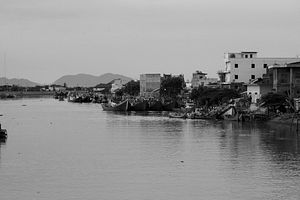Today marks 13 years since the government of Indonesia and the armed pro-independence movement, the Free Aceh Movement (GAM), signed a peace agreement in Helsinki. The peace deal ended 29 years of conflict that killed between 10,000 and 30,000 people, including many civilians.
While the agreement may have brought an end to the conflict in Aceh, the failure of the authorities to establish the truth about what happened has left countless families whose lives were torn apart by the violence still struggling to find justice, truth, and reparation.
In a discussion with Amnesty International, an Acehnese recently said that “what people in Aceh want is at least the government could establish the truth about what happened during the conflict so that no one is born in Aceh not knowing that happened to their grandfathers in the past.”
During those 29 years of conflict, Indonesian security forces and their auxiliaries committed serious human rights violations, including unlawful killings, enforced disappearances, and torture as part of a policy to suppress the independence movement. These crimes appear to have formed part of a widespread or systematic attack and may amount to crimes against humanity. Meanwhile, human rights abuses by GAM included hostage taking and the targeted killings of those suspected of having ties to the government.
For more than nine years, from early 1990 to August 1998, Aceh was classified as an Area of Military Operation (DOM). This DOM status was used to justify and intensify counterinsurgency operations against GAM, which saw large-scale human rights violations including extrajudicial executions, “disappearances,” torture, rape, imprisonment of peaceful activists, and unfair trials of suspected GAM members and supporters.
The situation was exacerbated by a climate of fear in which those seeking to challenge the authorities were subjected to threats. During the DOM, many Acehnese civilians with no connection to armed separatist activities were arrested, tried in proceedings that contravened international fair trial standards, and imprisoned for their alleged links with GAM. The restrictions imposed by the authorities on access to Aceh for human rights monitors and the media, together with the intimidation of human rights lawyers and the lack of an independent judiciary, meant that it was not possible for those accused of involvement with GAM to challenge these accusations.
Hope that the truth about the past may come to light rose when the Aceh House of People’s Representative (DPRA) — independently of the Indonesian government — appointed seven commissioners for the for the Aceh Truth and Reconciliation Commission, known locally as KKR Aceh, in July 2016 for the 2016-2021 period.
The establishment and the implementation of the Commission went through a long and winding road. The 2005 Helsinki Agreement mandated that a commission be established no later than one year after the peace agreement. However, the Indonesian government has so far failed to act on it and it took the DPRA eight years to pass a bylaw for its establishment in December 2013.
A further delay of three years in establishing the KKR and lack of funds, which prompted some commissioners to threaten to resign in May 2017, has subsequently called into question the Aceh government’s support for the KKR.
The reluctance of the national government to acknowledge the legitimacy of the KKR further complicates the problems faced by the Commission. The central government claims that KKR Aceh can only be established once Indonesia has its own National Truth and Reconciliation Commission. That process has, however, been stalled since 2006 when the Constitutional Court annulled the 2004 Truth and Reconciliation Law on the basis that a provision requiring that amnesty be granted to perpetrators of gross human rights abuses before victims can receive compensation and rehabilitation was unconstitutional.
The KKR Aceh is tasked to establish the truth about human rights violations that took place during the conflict and to initiate reconciliation to strengthen the unity of people in Aceh. With its findings, it will issue a recommendation to the Aceh government and the central administration to provide reparation in the forms of restitution, compensation, and rehabilitation for the victims and their families.
The central government must not let the Aceh government work alone to support the Commission. The decision to impose DOM that resulted in massive human rights violations was made at the national level. It was a state policy. In leaving the local government alone to remedy violations committed by national authorities, the central government is trying to evade any responsibility for what happened in Aceh.
The central government should not distance itself from the efforts to seek justice, truth, and reparation for victims and their family members in Aceh. President Joko “Jokowi” Widodo must take the initiative to issue a presidential decree that will serve as a legal basis for the central government to acknowledge and support KKR Aceh. Such a regulation will strengthen the legitimacy of KKR Aceh’s recommendation in the future. State bodies such as the National Commission on Human Rights (Komnas HAM) must also proactively support the work of KKR Aceh.
The government of Aceh must also strengthen KKR Aceh by ensuring that local authorities in the region provide full support and cooperation to the KKR, including access to records and documents related to the Aceh conflict.
Victims and their family members will continue to fight for the government to remember what happened in Aceh. Peace is not enough if no truth is established about the past and victims are left to suffer without reparation.
Usman Hamid is Indonesia Director of Amnesty International.

































